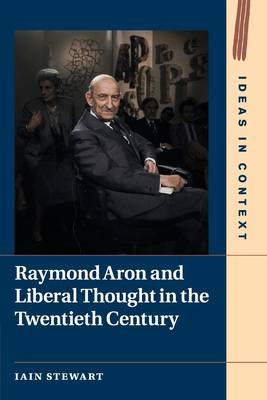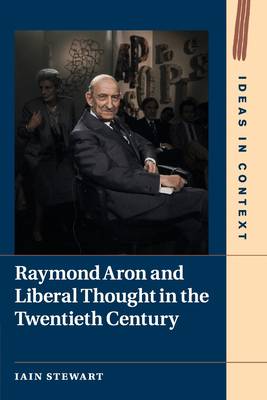
Je cadeautjes zeker op tijd in huis hebben voor de feestdagen? Kom langs in onze winkels en vind het perfecte geschenk!
- Afhalen na 1 uur in een winkel met voorraad
- Gratis thuislevering in België vanaf € 30
- Ruim aanbod met 7 miljoen producten
Je cadeautjes zeker op tijd in huis hebben voor de feestdagen? Kom langs in onze winkels en vind het perfecte geschenk!
- Afhalen na 1 uur in een winkel met voorraad
- Gratis thuislevering in België vanaf € 30
- Ruim aanbod met 7 miljoen producten
Zoeken
Raymond Aron and Liberal Thought in the Twentieth Century
Iain Stewart
€ 64,95
+ 129 punten
Uitvoering
Omschrijving
Raymond Aron is widely regarded as the most important figure in the history of twentieth-century French liberalism. Yet his status within the history of liberal thought has been more often proclaimed than explained. Though he is frequently lauded as the inheritor of France's liberal tradition, Aron's formative influences were mostly non-French and often radically anti-liberal thinkers. This book explains how, why, and with what consequences he belatedly defined and aligned himself with a French liberal tradition. It also situates Aron within the larger histories of Cold War liberalism and decolonization, re-evaluating his contribution to debates over totalitarianism, the end of ideology, and the Algerian War. By exposing the enduring importance of Aron's student political engagements for the development of his thought, Iain Stewart challenges the prevailing view of Aron's early intellectual trajectory as a journey from naïve socialist idealism to mature liberal realism, offering a new critical perspective on one of the twentieth century's most influential intellectuals.
Specificaties
Betrokkenen
- Auteur(s):
- Uitgeverij:
Inhoud
- Aantal bladzijden:
- 318
- Taal:
- Engels
- Reeks:
- Reeksnummer:
- nr. 124
Eigenschappen
- Productcode (EAN):
- 9781108735865
- Verschijningsdatum:
- 11/02/2021
- Uitvoering:
- Paperback
- Formaat:
- Trade paperback (VS)
- Afmetingen:
- 152 mm x 229 mm
- Gewicht:
- 426 g

Alleen bij Standaard Boekhandel
+ 129 punten op je klantenkaart van Standaard Boekhandel
Beoordelingen
We publiceren alleen reviews die voldoen aan de voorwaarden voor reviews. Bekijk onze voorwaarden voor reviews.









